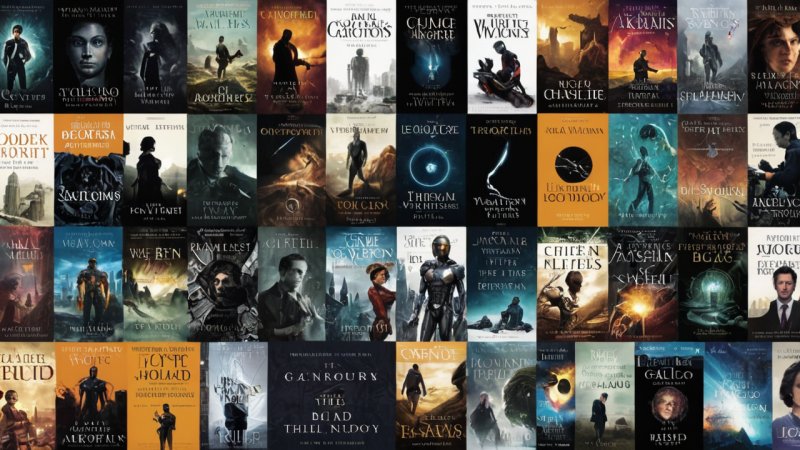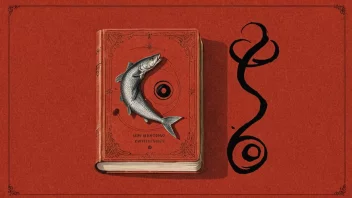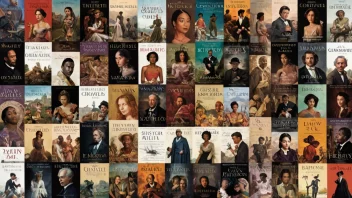The rapid evolution of technology has not only transformed the way we communicate and interact but has also inspired a plethora of literature that delves into its far-reaching implications. From novels that speculate about dystopian futures shaped by artificial intelligence to non-fiction works that analyze the effects of social media on our society, these bestselling books provide a window into the complex relationship between humans and technology. In this article, we will explore some of the most impactful bestselling titles that examine technology and its multifaceted effects on our lives.
Fiction that Reflects on Technological Dystopias
Many bestselling novels have harnessed the power of fiction to present cautionary tales about the future of technology. One such book is “Neuromancer” by William Gibson, a seminal work in the cyberpunk genre that introduces readers to a future where cyberspace and artificial intelligence dominate. This novel not only set the tone for futuristic literature but also predicted the rise of the internet and virtual reality, making it a must-read for anyone interested in the intersection of technology and storytelling.
Another compelling title is “The Circle” by Dave Eggers, which explores the implications of an all-seeing social media company that seeks to control every aspect of its users' lives. Through the eyes of the protagonist, Mae Holland, readers are invited to ponder the ethical dilemmas of surveillance and the loss of privacy in our increasingly digital world. Eggers' work serves as a warning about the seductive nature of technology and the potential consequences of surrendering our autonomy.
Non-Fiction Insights into Technology’s Role in Society
Beyond fiction, non-fiction books have also made significant contributions to our understanding of technology's impact. “The Shallows: What the Internet Is Doing to Our Brains” by Nicholas Carr examines how the internet alters cognitive processes and affects our ability to concentrate. Carr's arguments are backed by extensive research, making it an enlightening read for anyone curious about how technology shapes our mental faculties.
In “Weapons of Math Destruction”, Cathy O'Neil tackles the dark side of algorithms and big data, explaining how they can perpetuate inequality and discrimination. O'Neil’s book highlights the ethical responsibilities that come with technological advancements and encourages readers to critically evaluate the systems that govern our lives.
Young Adult Literature and Technology
Young adult literature has also embraced themes of technology, often reflecting the lives of teenagers navigating a digital world. “Little Brother” by Cory Doctorow is a notable example, where the protagonist, Marcus, becomes an anti-establishment hero after a terrorist attack leads to increased surveillance in San Francisco. The book raises important questions about civil liberties and the balance between security and privacy, resonating with a generation that grew up with technology at their fingertips.
Similarly, “Ready Player One” by Ernest Cline offers a nostalgic trip through the 1980s pop culture while immersing readers in a virtual reality world. The story highlights the escapism that technology can provide but also serves as a reminder of the importance of real-world connections. Cline’s work has captured the imaginations of both young adults and older readers, bridging generational gaps through its exploration of virtual worlds.
Classics Revisited: Technology’s Timeless Influence
Classic literature has not shied away from addressing technology and its implications either. George Orwell's “1984” remains relevant today as it explores themes of totalitarianism and the manipulation of truth through technology. Orwell’s depiction of a society under constant surveillance serves as a stark reminder of the potential dangers of unchecked technological power.
Similarly, Aldous Huxley’s “Brave New World” presents a society that thrives on technological advancements while sacrificing individuality and emotional depth. Huxley’s work encourages readers to reflect on the cost of progress and the importance of maintaining humanity amidst the rise of technology.
Literary Trends and the Future of Technology in Literature
The exploration of technology in literature continues to evolve as new advancements emerge. Current trends include the rise of speculative fiction that tackles issues like climate change, genetic engineering, and the ethical dilemmas surrounding artificial intelligence. Authors are increasingly blending genres, merging science fiction with elements of mystery or romance to create multifaceted narratives that reflect contemporary concerns.
Moreover, as technology advances, so too do the mediums through which stories are told. Interactive narratives and immersive storytelling, made possible by virtual and augmented reality, are beginning to reshape the literary landscape. Authors are exploring new ways to engage readers, offering experiences that transcend traditional reading.
Conclusion: Embracing the Literary Exploration of Technology
As technology continues to influence our lives, the literature that arises from it serves as a crucial reflection of our society's values, fears, and hopes. From cautionary tales to insightful analyses, the bestselling books exploring technology and its impact encourage readers to engage with the world around them critically. By delving into these works, we not only foster a love for reading but also gain a deeper understanding of the complex relationship between humanity and technology. The literary journey through these themes will undoubtedly continue to evolve, inviting new voices and perspectives that challenge and inspire us all.






